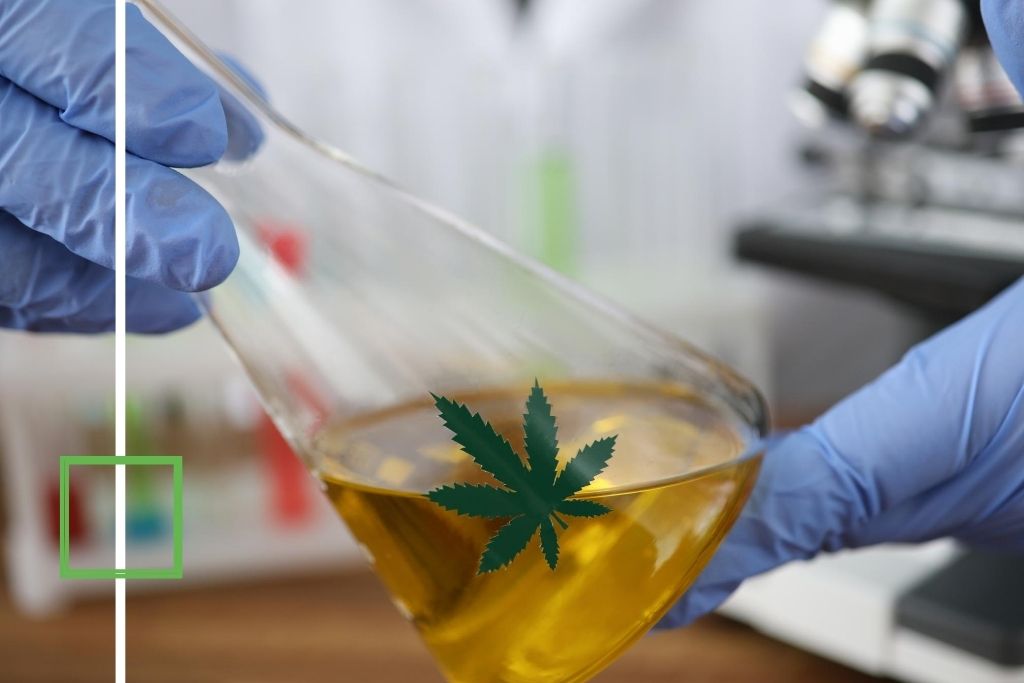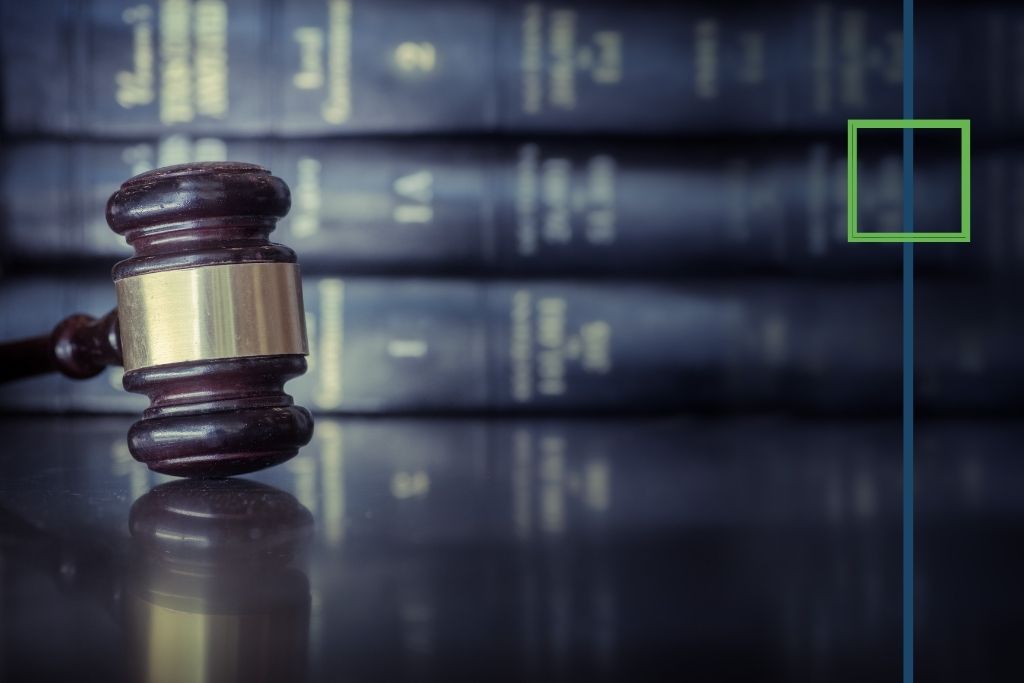What Is a Controlled Substance?
A controlled substance is a drug or other substance that the government controls because it may be abused or cause addiction [1]. The control applies to how the drugs are made, handled, used, stored, and distributed. Controlled substances include stimulants, opioids, depressants, hallucinogens, and anabolic steroids. Controlled substances with known medical use, such as Valium, morphine, Adderall, and Ativan, are available only by prescription from a licensed medical professional. Other controlled substances, such as heroin, Fentanyl, and LSD, have no known medical use and are illegal in the United States.
Controlled substances can be illegal or prescription drugs regulated by the Controlled Substances Act (CSA) in the United States. At times, understanding drug categorization is a frustrating and confusing topic for patients, especially when it comes to learning the ins and outs of controlled substances. For example, do you need a prescription for your medication, or can you just purchase it at a local drugstore? Is your medication a controlled substance with certain restrictions on how it can be prescribed or filled?
Prescription drugs can be divided into two sub-categories: controlled and non-controlled. Most prescriptions for infections or chronic conditions are non-controlled. For example, most cholesterol medications and blood pressure, asthma inhalers, diabetes medications, and antibiotics are all non-controlled medications.

Controlled substances are drugs that can cause mental and physical dependence, and the possession, manufacturing, and use of these medications is regulated by law. How controlled substances are classified and regulated by the Drug Enforcement Administration (DEA) [2], is based on how likely they cause dependence. Some examples of controlled substances include ADHD medications such as Adderall or opioid pain medications like Vicodin.

Get Your Life Back
Find Hope & Recovery. Get Safe Comfortable Detox, Addiction Rehab & Mental Health Dual Diagnosis High-Quality Care at the We Level Up Treatment Centers Network.
Hotline (877) 378-4154What is the Controlled Substances Act (CSA)?
The Controlled Substances Act (CSA) places all substances which were in some manner regulated under existing federal law into one of five schedules. This placement is based upon the substance’s medical use, the potential for abuse, and safety or dependence liability [3].
Since its creation in 1970, the Controlled Substances Act (CSA) has been used by law enforcement to decrease drug abuse and dependence among Americans by regulating the production, sale, purchase, and use of many drugs.
This act gives authority to the DEA to monitor and control the use of substances, both legal and illegal. Because of the many differences between the various types of substances, the CSA puts each substance into one of five categories, called schedules. These categories give each substance a simple classification that helps both law enforcement and the medical community to easily understand its nature.
As the act explains, each drug is put into a specific schedule based on the following factors:
- Its abuse potential
- Risk of users developing a dependence
- Scientific evidence of the drug’s side effects
- Historical and current patterns of people abusing the drug
- Current scientific knowledge related to the drug
- Magnitude, length of time and significance of the drug’s abuse
- Possible risk to public health
Why does a drug’s schedule matter?
A drug’s schedule establishes the foundation for the federal regulation of a controlled substance. Schedule 1 and 2 drugs face the strictest regulations. Schedule 1 drugs are illegal for anything outside of research, and schedule 2 drugs can be used for limited medical purposes with the DEA’s approval, for example, through a license for prescriptions.
It’s convenient to look at the drug schedule and assume it’s used to set policy for legal penalties and arrest. That’s not the case.
Thie Controlled Substance Act can help law enforcement agents understand the dangers inherent in drugs they seize during a raid. It does not help them determine how someone should be prosecuted.
For instance, the DEA maintains a list of federal trafficking penalties. Individuals face the same penalties for a first offense if they are holding:
- Cocaine (Schedule II drug)
- Fentanyl (Schedule II drug)
- Heroin (Schedule I drug)
- LSD (Schedule I drug)
The schedules can also affect how researchers do their work. For example, medical experts continue to explore drug structure and capabilities, and they research ways to help individuals recover from substance abuse. To do that, they need to obtain samples.
As the DEA explains, Schedule I substances can’t be prescribed or dispensed for medical use. If researchers want to dig into these studies, they must get special permission from the Food and Drug Administration to do so. Those requests aren’t always honored.

Why do drug schedule matter in a criminal case?
In practical terms, the higher the schedule of the drugs in someone’s possession, the more serious the charges they are likely to face.
A sizeable amount of a Schedule IV or Schedule V drug, like buprenorphine or lorazepam, could be charged as a Class 1 misdemeanor, while even a small amount of a Schedule I or Schedule II drug could be charged as a Class 6 felony. A Class 1 misdemeanor can only get a maximum of 18 months in jail, while a Class 4 felony can send someone to prison for up to six years.
When someone is facing drug charges, they can be more proactive in their own defense if they fully understand the consequences of a conviction.
Can a drug be unscheduled?
It’s possible to unschedule a drug, but it’s much more difficult than simply rescheduling a drug. One major hindrance is international treaties. The US is party to international agreements that effectively require some drugs to remain within the scheduling system.
Proving that a substance or drug has no potential for abuse is also extremely difficult, if not impossible. An American Scientist analysis, for instance, found even relatively safe marijuana has some potential for dependence; it’s less addictive than meth, heroin, cocaine, alcohol, and nicotine but more addictive than hallucinogens such as LSD. And since marijuana is widely used recreationally, that makes it a sure candidate for “high potential for abuse.”
The two main recreational drugs not on the scheduling system — tobacco and alcohol — required a specific exemption in the Controlled Substances Act. Some experts argue that both would be labeled schedule 1 if they were evaluated today because they’re widely used recreationally, dangerous to one’s health and society, addictive, and deadly.
Get Help. Get Better. Get Your Life Back.
Searching for Accredited Drug & Alcohol Rehab Centers Near You? Or Mental Health Support?
Even if you have failed previously, relapsed, or are in a difficult crisis, we stand ready to support you. Our trusted behavioral health specialists will not give up on you. Call us when you feel ready or want someone to speak to about therapy alternatives to change your life. Even if we cannot assist you, we will lead you wherever you can get support. There is no obligation. Call our hotline today.
FREE Addiction Hotline – Call 24/7Are alcohol and tobacco controlled substances?
Neither alcohol nor tobacco is legally listed as a controlled substance. Over the years, despite the staggering risks linked with smoking and alcohol abuse, lobbying to get tobacco and alcohol listed as controlled substances has been mostly futile. Of course, both alcohol and tobacco are subject to government regulation, but laws vary from state to state. For instance, grocery stores in Virginia carry beer and wine selections, but if you travel to Pennsylvania, you need to go to a specialty store for alcohol of any kind.?
What are the risks of using a controlled substance?
There are many types of controlled substance prescription drugs that are used to treat a variety of conditions and illnesses, including cough, moderate to severe pain, anxiety, attention disorders, seizures, obesity, sleeping disorders, and many others. Controlled substances can be useful and effective aids in the treatment and management of these conditions when taken as prescribed by a health care practitioner.
Controlled substance medications can also lead to serious risks and possible health complications, which may include stroke or heart attack, hormonal imbalances that also may affect certain organs, abnormal behavior, memory loss, anxiety, depression, suicidal thoughts, significant drowsiness, difficulty breathing, stupor, coma, and death. Possible side effects will vary depending on the type of medication a person is taking. Even when used as prescribed, additional risks are possible, including tolerance, physical dependence, misuse and abuse, addiction, relapse of addiction symptoms, overdose, and death.
Know the facts about controlled substance
- Mixing controlled substances with alcohol or other medications, such as benzodiazepines (some examples are diazepam, alprazolam, and clonazepam), raises the risk of experiencing serious or life-threatening side effects.
- Other over-the-counter muscle relaxers and painkillers or prescriptions medications may seriously increase the risk of side effects, including overdose. Always read the warning labels on any prescription or over-the-counter medications before taking, and take only as directed.
- Quitting certain medications, such as a benzodiazepine or opioid, may lead to withdrawal symptoms, which may include: abdominal cramps, muscular pain, nausea, tremors, piloerection (goosebumps), appetite changes, vomiting, heart palpitations, mood swings, panic attacks, diarrhea, dilated pupils, thinking and memory difficulties, and sleep disturbances. Symptoms will vary depending on the controlled substance medication a person is taking.
- Do not increase the dose or take more frequent doses than prescribed by your practitioner.
- If your pain is relieved to your satisfaction, you may decide to stop taking the medication. If you have leftover medication, you should follow appropriate disposal guidelines.
- If you prefer to avoid opioids altogether, your doctor can talk to you about other, alternative means of treating your pain without opioids.
- Seek medical attention immediately if experiencing unusual symptoms, which may include: swelling, pain, redness or tingling in arms or legs, confusion, severe headache, chest pain, severe pelvic pain, dizziness or lightheadedness, extreme sleepiness, suicidal thoughts, slowed or difficult breathing, or unresponsiveness. Be particularly careful when starting treatment with a controlled substance prescription medication, when your health care practitioner changes your dose, or if you consume extra dosages.
- As a safety measure, while you are taking opioid medications, you may want your friends and family to be trained to administer naloxone to reverse an overdose.

- Store all medications in one designated location, in a dry and cool place. Be sure the medication location is secure and safe. Regular tracking of medications is a good idea, especially when others live with, or are visiting, you.
- For more information about the possible side effects and risks of this prescription, or other medications you are taking, talk to your prescriber or pharmacist.
Classifications of Controlled Substance
Controlled substances are classified according to the impact they have upon users, the potential for dependency, the potential for drug abuse, and their level of medicinal benefit. They are categorized on a scale of 1–5, with Schedule I substances being the most dangerous and Schedule V being the least dangerous.
What is a controlled substance – Schedule I drug?
Substances in this schedule have no currently accepted medical use in the United States, a lack of accepted safety for use under medical supervision, and a high potential for abuse. Commonly known as “street drugs,” these are the least safe of all controlled substances.
Examples of Schedule I substances include:
- Gamma-hydroxybutyric acid (GHB)
- Heroin
- Lysergic acid diethylamide (LSD)
- Methylenedioxymethamphetamine (MDMA or ecstasy)
- Methaqualone (Quaalude)
- Peyote
- Bath Salts
- Synthetic Marijuana
- Marijuana, which is legal in some states, is still classified as a Schedule I drug at the federal level as of this writing.
Marijuana is the only Schedule I drug that is legal for recreational and medicinal uses in many states. However, many experts believe the drug’s status should be modified to allow for more extensive studies to determine the medical benefits of marijuana.
Comfortable Facilities & Amenities
High-Quality Addiction & Mental Health Rehabilitation Treatment
Rehab Centers TourRenowned Addiction Centers. Serene Private Facilities. Inpatient rehab programs vary.
Addiction Helpline (877) 378-4154Proven recovery success experience, backed by a Team w/ History of:
15+
Years of Unified Experience
100s
5-Star Reviews Across Our Centers
10K
Recovery Success Stories Across Our Network
- Low Patient to Therapist Ratio
- Onsite Medical Detox Center
- Comprehensive Dual-Diagnosis Treatment
- Complimentary Family & Alumni Programs
- Coaching, Recovery & Personal Development Events
What is a controlled substance – Schedule II drug?
Schedule II drugs possess some known medicinal benefits and high potential for dependency and abuse. While many Schedule II drugs are sold on the streets, some are actually prescribed by doctors when a patient needs that drug’s benefit. For instance, intense painkillers — while fairly addictive, if not used under the supervision of a physician — are usually medically beneficial when a patient is in severe physical pain or undergoing palliative care.
Many narcotics and stimulants are classified as Schedule II substances, including:
What is a controlled substance – Schedule III drug?
Schedule III drugs and substances have less potential for abuse than the substances or drugs in Schedules I and II. They have a currently accepted medical use in treatment in the U.S.
Abuse of the substance or drug may lead to moderate or low physical dependence or high psychological dependence.
Examples of Schedule III substances include:
- Anabolic steroids
- Barbiturates
- Products containing less than 90 milligrams of codeine per dosage unit (Tylenol with codeine)
- Hydrocodone with aspirin or Tylenol
- Ketamine
- Testosterone
What is a controlled substance – Schedule IV drug?
Schedule IV drugs or substances possess medicinal benefits, have limited potential for abuse and moderate potential for dependency. These medications are often prescribed to people who suffer from anxiety.
Here is a list of Schedule IV drugs that are most frequently today:
- Xanax
- Darvon/Darvocet
- Valium
- Ativan
- Librium
- Klonopin
- Ambien
- Sonata
- Lunesta
- Soma (carisoprodol)
- Tramadol
World-class, Accredited, 5-Star Reviewed, Effective Addiction & Mental Health Programs. Complete Behavioral Health Inpatient Rehab, Detox plus Co-occuring Disorders Therapy.
CALL (877) 378-4154End the Addiction Pain. End the Emotional Rollercoaster. Get Your Life Back. Start Drug, Alcohol & Dual Diagnosis Mental Health Treatment Now. Get Free No-obligation Guidance by Substance Abuse Specialists Who Understand Addiction & Mental Health Recovery & Know How to Help.
What is a controlled substance – Schedule V drug?
These drugs have the lowest potential for abuse. Prescriptions to control conditions like irritable bowel syndrome and fibromyalgia are among those considered Schedule V. Less powerful cough medicines are available over the counter, but ones that contain certain amounts of codeine are controlled as Schedule V drugs.
Examples of Schedule V substances include:
- Cough medicines with less than 200 mg of codeine per dose
- Robitussin AC
- Lacosamide
- Pregabalin (Lyrica)
- Pyrovalerone
Find the Right Addiction Treatment at We Level Up NJ
Now that we’ve answered the question, what is a controlled substance, and learned that the Controlled Substance Act (CSA) designates some drugs as illegal, some individuals may not seek treatment for their addiction for fear of being arrested for possession. But having an addiction is not illegal. Getting treatment can help turn your life around.
Despite the regulation of these substances, substance abuse and dependence is a daily struggle for millions of Americans. Addiction treatment facilities operate to fill the void and help those who are struggling with addiction. If you or a loved one is struggling, don’t hesitate to get help today!
We Level Up NJ provide proper care with round-the-clock medical staff to assist your recovery. So, reclaim your life, call us to speak with one of our treatment specialists. Our counselors know what you are going through and will answer any of your questions.

Experience Transformative Recovery at the We Level Up Treatment Center.
See our authentic success stories. Get inspired. Get the help you deserve.



Start a New Life
Begin with a free call to an addiction & behavioral health treatment advisor. Learn more about our dual-diagnosis programs. The We Level Up treatment center network delivers various recovery programs at each treatment facility. Call to learn more.
- Personalized Care
- Caring Accountable Staff
- Comfortable Amenities
- Licensed & Accredited
- Renowned w/ 5-Star Reviews